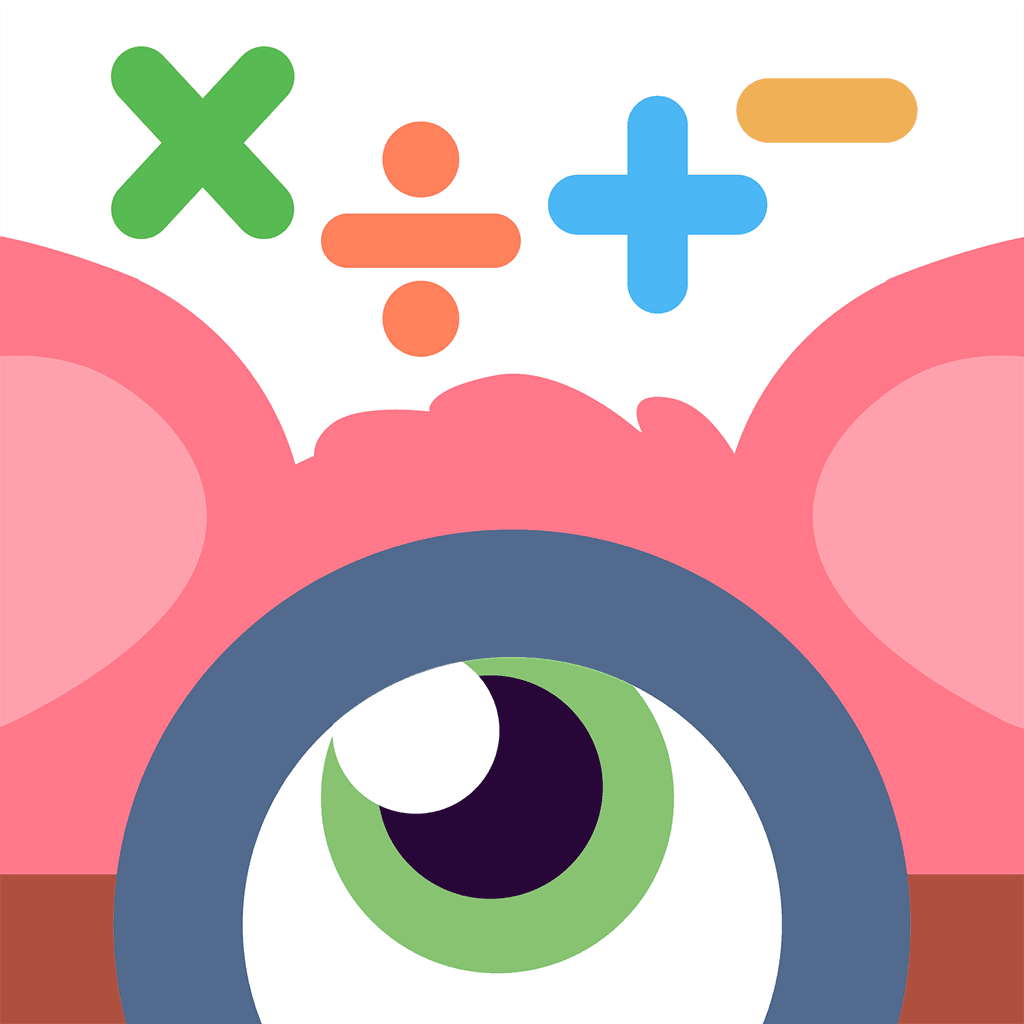5 Amazing Math Games To Transform Your ADHD Child's Math Skills
Children with ADHD often face challenges in traditional math classrooms, but interactive games offer a dynamic solution. By leveraging technology, these games transform learning into an engaging adventure, enhancing focus and motivation.
Math games are revolutionizing how ADHD children engage with numbers and calculations. By combining captivating visuals, immediate feedback and reward systems, these games transform what might otherwise be a frustrating experience into an engaging adventure that keeps students focused and motivated to learn.
Looking for learning games beyond Math? Check out our larger list of best learning games for kids with ADHD.
How to Identify Effective Math Games For Children With ADHD
Parents often face a real challenge when looking for math games that keep their ADHD children focused and interested. Conventional math teaching techniques often result in boredom or frustration for children with ADHD, highlighting the need for engaging and adaptive learning tools. The good news is that interactive math games offer a practical solution.
However all games are not the same - time spent on task is important, so is the design of the game from a pedagogical and kid-safety standpoint.
Educational Games Support Math Success
Educational games do more than make math fun - they build essential learning skills for children with ADHD. These games help kids develop better focus, working memory, and cognitive flexibility – all key executive function skills often impacted by ADHD. When students play interactive math games, they show clear improvements in their math performance and classroom participation.
Digital games track each child's progress and adjust difficulty levels accordingly. This means students can move at their own pace, getting more practice in areas where they need help while advancing quickly through concepts they've mastered. The combination of personalized learning paths and game-based rewards creates an effective environment for math skill development.
What to Look for in Math Games for ADHD Students
Good math games for ADHD children have clear, bright graphics and respond quickly to player actions. The best games offer short, focused activities with clear goals and instant feedback after each answer. This helps students stay on task and understand their progress.
Look for games that start simple and add more challenges as your child masters each level. The right balance of fun and learning keeps kids interested without getting overwhelmed. Features like colorful characters, sound effects, and achievement badges make practice more engaging.
Parents should check that games work well on their home devices, whether computers, tablets, or phones. Free trial periods let you test different options to find what works best for your child's learning style.
In short - when evaluating math games for your child with ADHD, look for these key elements:
✅ Short bursts of challenge (to match attention span)
✅ Immediate feedback (to reinforce effort)
✅ Adaptive difficulty (so they’re never bored or overwhelmed)
✅ Visually engaging design
✅ Low stakes for mistakes (to build confidence)
Monster Math: Adventure-Driven Learning
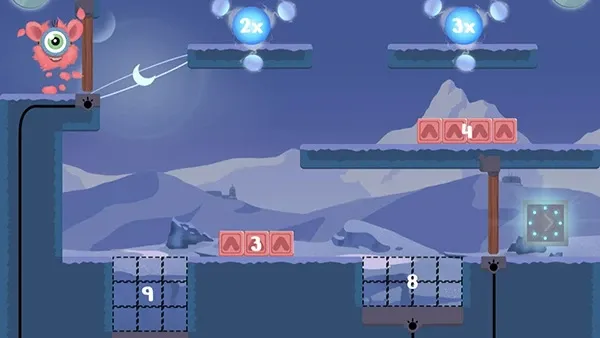
🧠 Skills targeted: Math fact fluency, number strategies, attention regulation
📱 Platforms: iOS, Android
Monster Math turns math practice into an exciting quest where kids battle monsters by solving math problems. The game guides students through a series of missions, each teaching specific math concepts through colorful characters and engaging storylines.
Kids join characters on math-themed adventures, solving puzzles and completing challenges to progress. The game covers Math fact fluency and problem-solving skills through its quest-based format. Each correct answer moves the story forward, giving students a clear sense of achievement.
Instead of only working on drilling or quizzing, the game introduces number strategies, so that it helps kids be flexible with math.
The game adjusts difficulty based on performance, preventing frustration while maintaining interest. Short missions with clear goals work well for ADHD students, letting them track progress easily. Regular rewards and achievement badges motivate continued practice.
Math Makers: Characters That Make Math Fun
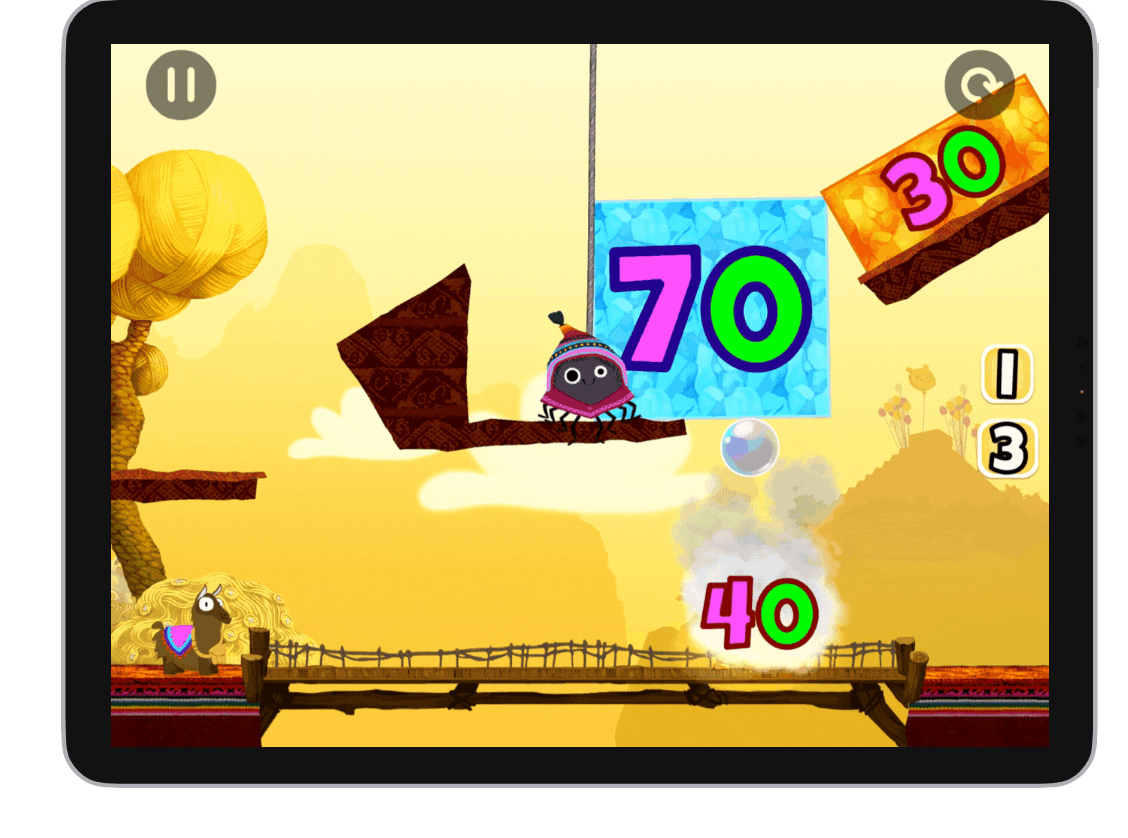
🧠 Skills targeted: Logical reasoning, number operations, cognitive flexibility
📱 Platforms: iOS, Android
Math Makers stands out with its puzzle-based approach to teaching math. The game features quirky characters who guide children through math lessons using funny situations and bright animations. Each lesson feels like a small adventure rather than a math class.
Children work with numbers while solving puzzles that keep their attention. The graphics pop with color, and well-timed humor helps maintain focus during practice sessions.
What makes Math Makers work well for kids with ADHD is its smart challenge system. The game watches how quickly kids answer questions and changes the challenge accordingly by giving additional hints if needed.
Prodigy: RPG-Style Math Adventures

🧠 Skills targeted: Core math skills, persistence, motivation through RPG format
📱 Platforms: iOS, Android, Web
Prodigy brings math practice to life through an immersive role-playing game world where students create their own characters and go on quests. As children progress through the game, they answer math questions to cast spells and win battles.
The game connects directly to school math topics from kindergarten through 8th grade. Students pick up new skills while exploring magical worlds and collecting rewards. Each correct answer powers up their character and moves them forward in their adventures.
What works especially well for ADHD students is how Prodigy adjusts to each player's skill level. The game spots when a child needs more practice with certain concepts and provides extra opportunities through different challenges. Regular in-game achievements and rewards, similar to preschool learning games, help keep students focused on their math goals.
Need a quick refresher on 15 parent-approved ADHD-friendly math strategies? Dive into our pillar post of all things related to ADHD and Math for step-by-step guidance.
Khan Academy Kids: Free Learning for Young Minds
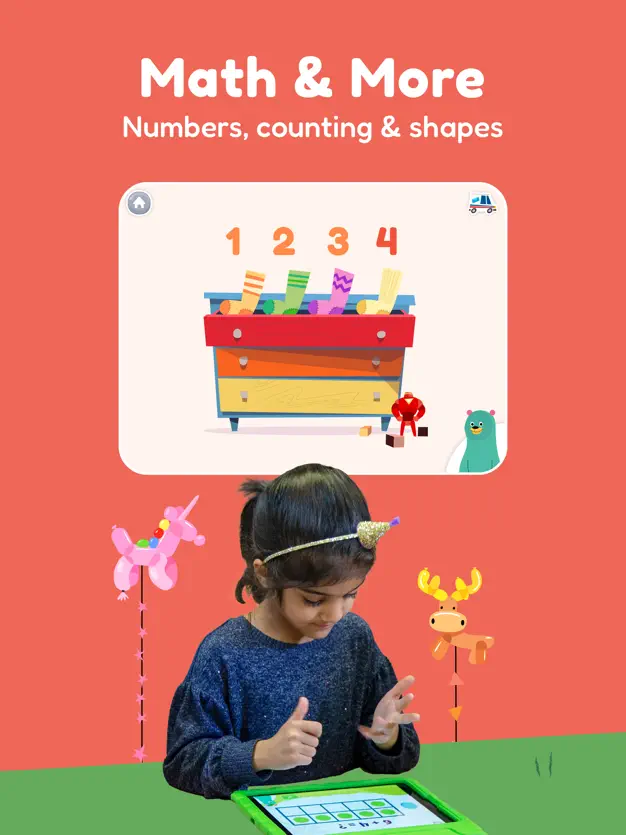
🧠 Skills targeted: Counting, early operations, visual learning, focus stamina
📱 Platforms: iOS, Android
Khan Academy Kids offers a strong mix of math activities that work well for students with ADHD. The app brings math to life through friendly animated characters who guide children through lessons. Each activity includes clear instructions and quick responses to keep young learners engaged.
Students can work on addition, subtraction, counting, and basic number skills at their own speed. The app tracks progress and suggests new activities based on how well kids handle each lesson. Bright colors, fun sounds, and simple controls make it easy for children to stay focused on learning.
KA Kids is mainly useful for younger kids, starting on their Math journey - starting with counting and basic addition and subtraction.
Parents like that Khan Academy Kids is free and works on most devices. Kids can switch between different types of math problems to stay interested, and the self-paced format lets them take breaks when needed.
Geogebra: Math Learning Through Visual Action
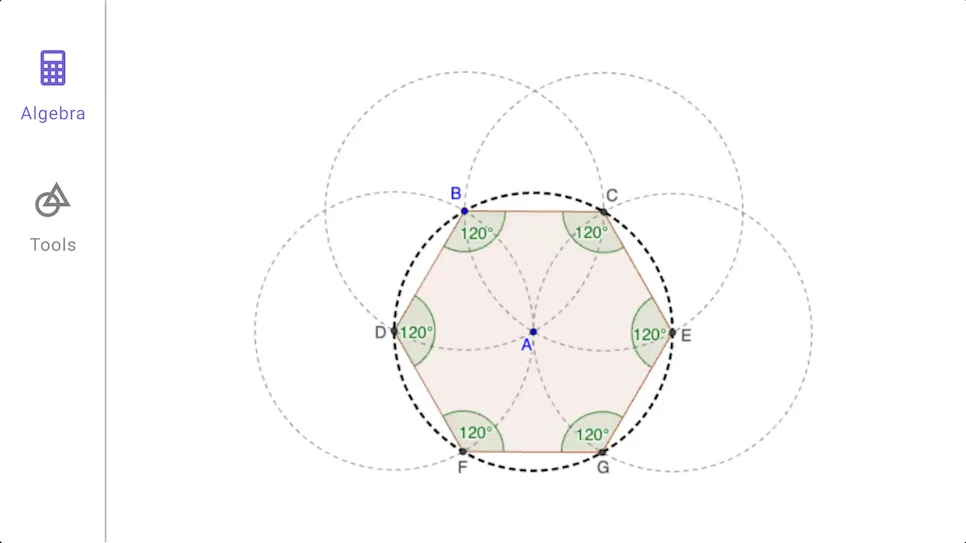
🧠 Skills targeted: Geometry, algebra, graphing, hands-on math exploration
📱 Platforms: Web, Desktop, Mobile
Geogebra brings math concepts to life through interactive visuals and hands-on activities. Students can move shapes, draw graphs, and test mathematical ideas in real-time. This visual approach works well for ADHD learners who prefer active participation over passive learning.
Indeed, this is more a tool than a game - but it can be so fun that kids can enjoy playing it for long.
The software lets kids experiment with geometry, algebra, and calculus concepts by manipulating objects on screen. Students can drag points, create shapes, and watch how changes affect mathematical relationships. This direct interaction helps maintain attention and builds understanding through practical experience.
For ADHD students, Geogebra's strength lies in its immediate visual feedback. When students adjust equations or shapes, they see results instantly. The tool supports both guided lessons and free exploration, letting kids learn at their own pace while staying engaged with the material.
Geogebra mainly works well for older kids, from Grades 4 onwards.
FAQs
Are there free apps available for these topics?
Khan Academy Kids and Geogebra is completely free and Monster Math and Prodigy have free versions. Monster Math and Math Makers also offer 7 day trial for their paid content.
How do I know what games are good for my child?
The best way to know, is to try! Early on look out for signs that your child is genuinely enjoying the experience, as well as spending enough time on Math. After spending more time, look for evidence that your child is actually learning new concepts or getting better at Math.
Ideally, the game should avoid time pressure by way of timers (since kids with ADHD can struggle with that), and have a calm, inviting experience (so they avoid over-stimulating your child).
How is Monster Math ADHD-friendly?
Monster Math is Neuroinclusive by design - it has no timers, starts with visually showing Math concepts and eventually moves to symbols and expressions as seen in school. This approach is backed by research, especially the rich body of work by Dr. Jennifer Bay-Williams. The program is self-paced, so it works at your child's pace, and not the other way around.
Making Math Success Achievable
Remember, the best math game is one that your child enjoys playing consistently and helps them achieve their current learning goals. By choosing games that balance entertainment with educational value, you can help your child build strong mathematical foundations while having fun. The key is to experiment with different options and observe which ones keep your child most engaged and showing progress.
Helping a child with ADHD succeed at math isn’t about more worksheets — it’s about finding the right tools that speak their language. These five games aren’t just fun; they’re built around how ADHD kids think, move, and stay motivated. Whether your child is building confidence, catching up, or just needs a better way to engage — the right math game can make all the difference.
Try one today — and turn math time into something your child actually looks forward to.
